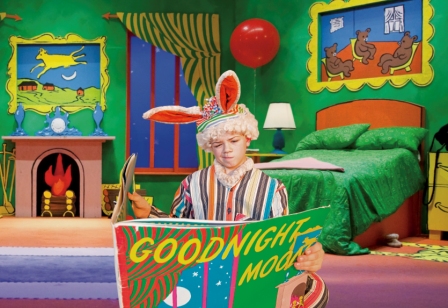 The Kennedy Center is doing it. The Smithsonian is doing it. Even the Met is doing it. And now, Northwest Children’s Theater and School (NWCT) is doing it too.
The Kennedy Center is doing it. The Smithsonian is doing it. Even the Met is doing it. And now, Northwest Children’s Theater and School (NWCT) is doing it too.
Like these venerable east coast institutions, NWCT is pioneering sensory-friendly lighting, sound and content so that autistic, ADHD, and other sensory-sensitive children can enjoy local theater in Oregon.
Other-abled cultural programming is not new, but theater companies like Paper Mill Playhouse (New Jersey), Adventure Theatre (Washington DC), and Missoula Children’s Theatre in Montana had recently begun engineering sensory-friendly productions, and NWCT became interested.
A Cultural Trust grant of $5,000, along with private funding, has helped the Portland theatre company acquire lighting technology and equipment that would provide an easier viewing experience for these nuanced productions. The company is still raising money for upgrades and a comprehensive system for sensory-friendly productions.
Located in Northwest Portland, NWCT has planned and produced one sensitive production this season. “Goodnight, Moon” opens February 1 and will stage two sensory-sensitive performances on February 22 and March 1.
According to NWCT Artistic Director Sarah Jane Hardy, the project involved creating two different versions of the same production. The main differences include foreshortened run time, no intermission, and modifications to plot, lighting and sound. “We will keep the house lights up, leave buffer seats between each family (so that children are able to move around), and remove sensory surprises,” said Hardy. Such surprises include “screams and loud sounds, from the actors and from the board.”
As a children’s theatre, NWCT is nearly immune to short attention spans, restlessness, and interruptions. “We have been doing previews for years for teen moms with babies, foster children, visually impaired groups with audio aids, a line of wheelchairs that make noise, and otherwise antsy kids,” Hardy recounted. She says the actors are prepared for anything, including children who might hit overload and bolt. “I’m confident, whatever they throw at the cast, the cast will be able to take it in stride and enjoy it. Live theater has a live audience. We want that audience to live,” said Hardy.
Hardy’s research has shown her preparedness is key, and she is working with Multnomah County Library and Portland Public Schools Special Education teachers to create “social stories,” or picture books that explain the impending experience to the children, one step at a time. “The concepts revolve around preparedness. For example, ‘we’ll arrive at the theater and there will be a lot of people,’” said Hardy.
In addition to providing free tickets to several groups, NWCT has been marketing the production to AWEtism We Embrace, ASD Caregivers’ Support Group, Autism Society of Oregon, Portland Asberger’s Network and other organizations that aid autistic children and adults. The theatre company estimates it will reach an additional 2,000 people through these shows.
Despite all their planning, Hardy remains unattached to outcomes. “I’m prepared to fail,” she said. “If we try this and it’s not right, we’ll figure out another way. This is an investigation.”
The goal of NWCT is to include children who have previously been excluded from attending the theater. “I have had parents and grandparents well up at the thought of being able to experience this with their children.”
-Meryl Lipman, Trust Communications Manager